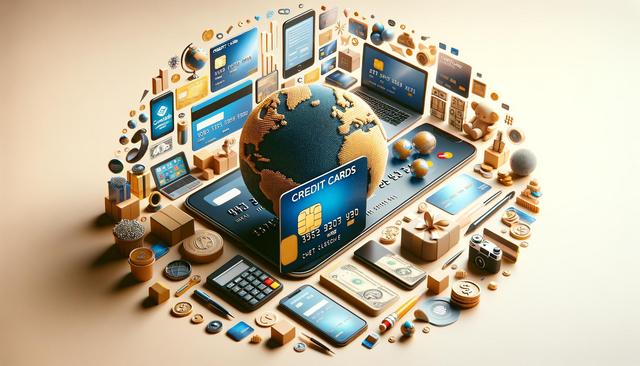Understanding Different Types of Credit Cards
When exploring credit card options for everyday use, it’s important to first understand the various types of credit cards available. Each type is designed to serve different financial needs and spending habits, making it easier to find one that aligns with your goals. Common types include rewards cards, cash back cards, secured cards, and low-interest cards. Rewards cards typically offer points or miles for purchases, while cash back cards return a percentage of your spending as a statement credit or direct deposit. Secured cards can be a good option for those looking to build or rebuild credit, requiring a refundable security deposit. Low-interest cards are ideal for individuals who may carry a balance occasionally and want to minimize interest charges. Choosing the right type ensures that the card benefits your lifestyle while offering easy credit card processing features that help streamline daily transactions.
Key Spending Features to Consider
Spending features are critical when selecting a credit card for regular use. Modern credit cards come equipped with a variety of tools designed to optimize the shopping experience and offer convenience. Common features include contactless payments, virtual card numbers for online purchases, and integration with mobile wallets. Some cards also provide enhanced security features like purchase alerts and zero-liability protection. These tools not only simplify spending but also offer peace of mind. For those who shop frequently, cards with instant credit card processing and quick credit card processing capabilities can significantly reduce wait times and improve transaction efficiency. It’s also worth looking for cards that offer spending insights or breakdowns, helping users understand where their money is going each month. These features are especially helpful for budgeting and financial planning.
Effective Credit Card Management Tools
Managing a credit card responsibly is just as important as choosing one with great features. Today’s credit cards often come with digital management tools that make it easier to stay on top of your finances. These tools typically include mobile apps with real-time balance tracking, transaction alerts, and payment reminders. Many apps also provide access to your credit score and offer tips on how to improve it. Budgeting tools integrated into the card’s platform can help categorize spending and set monthly limits, which are useful for maintaining control over daily expenses. In addition, some cards offer flexible payment options such as split pay or installment plans. Easy credit card processing combined with these management tools ensures that users have a seamless and informed experience when handling their credit accounts.
Comparing Processing Features for Everyday Use
Processing speed and efficiency can make a big difference for daily credit card users. Whether you’re at the grocery store or shopping online, fast and reliable processing ensures a smoother transaction. Instant credit card processing is particularly useful during busy shopping hours, reducing the time spent at checkout. Cards that support quick credit card processing tend to work well with modern point-of-sale systems and online platforms. Additionally, some providers focus on offering the cheapest credit card processing for merchants, which can indirectly benefit consumers by keeping prices lower. When selecting a card for everyday use, consider how well it integrates with the types of retailers and services you use most frequently.
Finding the Right Fit for Your Financial Lifestyle
Choosing the right credit card involves more than just looking at rewards or interest rates—it’s about finding a card that fits your overall financial habits and lifestyle. Consider questions like: How often do you use your card? Do you pay off your balance in full each month? Are you looking for tools to help you manage spending? Cards with easy credit card processing are ideal for frequent shoppers, while those with strong management tools benefit users focused on financial discipline. It’s also helpful to compare cards based on:
- Annual fees and interest rates
- Spending categories that earn rewards
- Customer service availability
- Added perks like travel insurance or purchase protection
Matching a card’s features with your spending style will help ensure it serves you well in everyday use without unnecessary costs or complications.
Conclusion
Credit cards have evolved into versatile financial tools, offering a range of features to meet diverse needs. By understanding the different types of cards, evaluating spending features, and using available management tools, consumers can make informed choices that support their daily financial activities. Whether you prioritize instant credit card processing, want the cheapest credit card processing for your go-to merchants, or simply need easy credit card processing for personal convenience, there’s likely a well-regarded option available that fits your needs. Taking the time to assess these features can lead to smarter spending and better financial outcomes over time.




Leave a Reply